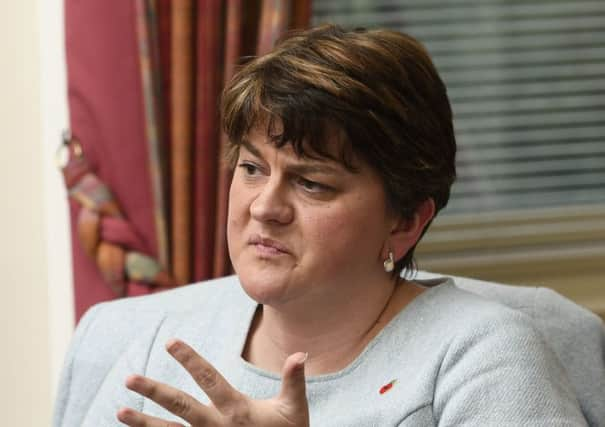RHI scandal: '˜Buy-outs risk rewarding the scammers'


Mairtin O Muilleoir said such an idea – called a “buy-out” – risked “rewarding” people who should not be on the scheme in the first place.
The idea of a buy-out was touted as a possible option in the media during the week.
Advertisement
Hide AdAdvertisement
Hide AdIt would involve essentially offering cash to RHI recipients now, instead of the government having to keep paying them subsidies over the next two decades.
He said: “I don’t want to reward those who have been scamming the system. I want to find a way to go after those who have taken money they shouldn’t have taken.”
The RHI scheme was set up in 2012 under Arlene Foster’s Department for Enterprise, Trade and Investment (DETI), to increase the number of people using renewable (mainly wood pellet) fuels.
Unlike on the mainland UK it was set up without crucial cost controls, such a clause which made sure subsidies drop sharply after a boiler had been left on for a certain length of time, discouraging wasteful use of fuel.
Advertisement
Hide AdAdvertisement
Hide AdIn fact, it was set up in such a way that people could actually earn profits by wasting fuel, because the subsidies paid per kilowatt of heat generated outstripped the cost of the fuel – something Mrs Foster said had been a mistake which went unnoticed by officials.
Although it has been little-publicised, there is in fact a clause in the 2012 act – the Renewable Heat Incentive Scheme Regulations (Northern Ireland) – stating users “must not generate heat for the predominant purpose of increasing their periodic support payments”.
The News Letter asked the Department for Enterprise (which hastaken over from DETI) if this could invalidate the whole scheme, since many users could not help but make a profit, but no direct answer has been received.
The scheme was shut in February 2016 after a colossal surge in demand.
It has been reported that the Westminister government was set to fund the scheme, but with the costs now so high, Northern Ireland must stump up some cash from its own budget.